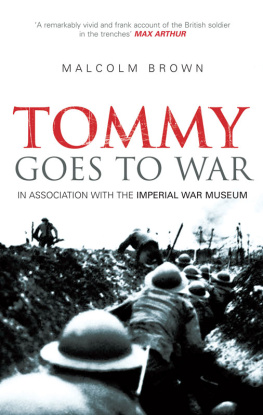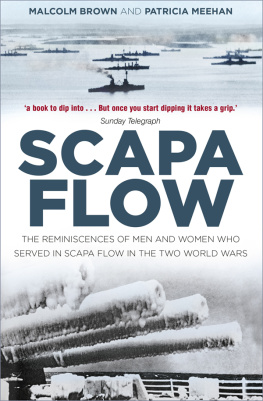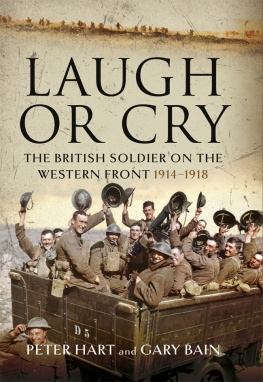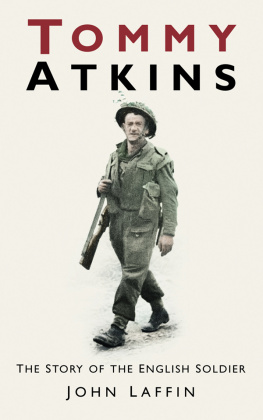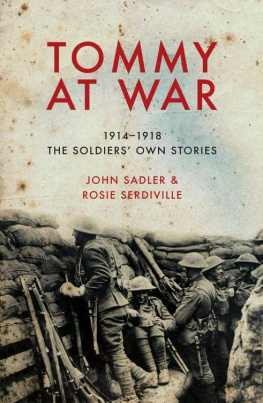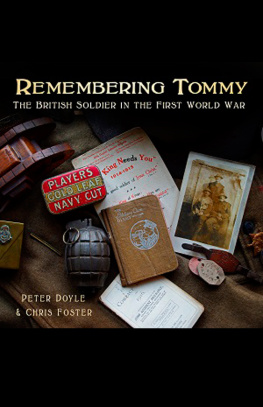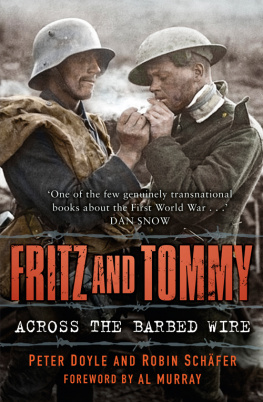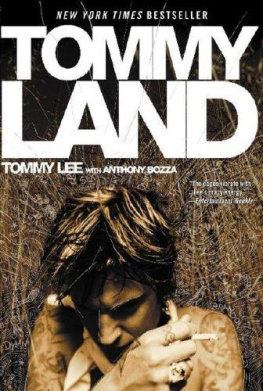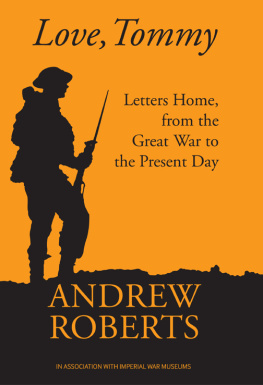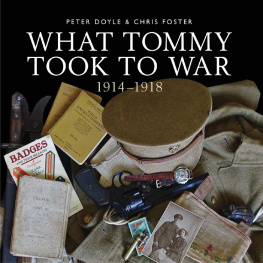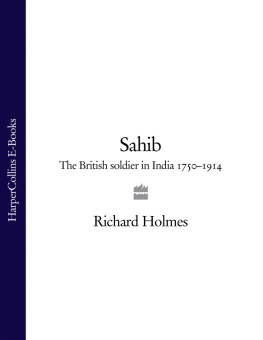

First published in 1978
This edition first published in 2009
The History Press
The Mill, Brimscombe Port
Stroud, Gloucestershire, GL5 2QG
www.thehistorypress.co.uk
This ebook edition first published in 2013
All rights reserved
Malcolm Brown, 1978, 1981, 1986, 1999, 2001, 2005, 2009, 2013
The right of Malcolm Brown, to be identified as the Author of this work has been asserted in accordance with the Copyrights, Designs and Patents Act 1988.
This ebook is copyright material and must not be copied, reproduced, transferred, distributed, leased, licensed or publicly performed or used in any way except as specifically permitted in writing by the publishers, as allowed under the terms and conditions under which it was purchased or as strictly permitted by applicable copyright law. Any unauthorised distribution or use of this text may be a direct infringement of the authors and publishers rights, and those responsible may be liable in law accordingly.
EPUB ISBN 978 0 7524 9457 9
Original typesetting by The History Press
Contents
About the Author
Malcolm Brown is a best-selling popular military historian. Originally a television producer specialising in military documentaries, he has researched and written extensively on the First and Second World Wars. His other books include Verdun 1916 (published by Tempus), 1918: Year of Victory and The Imperial War Museum Book of the Somme. He is a regular contributor to BBC History Magazine. He lives in Reading.
Praise for Verdun 1916
A haunting book which gets closer than any other to that wasteland marked by death Richard Holmes
A fine account, very well illustrated and, extremely moving BBC History Magazine
In recent years much emphasis has been deservedly placed by historians on reassessing the Battle of the Somme; but the Somme and Verdun are so closely linked, the former continuing in an effort to relieve pressure on the latter... Highly recommended Stand To! The Journal of the Western Front Association
Preface
What was it like to serve in the trenches in the First World War? To cope with rats, lice and endless, cloying mud? To go over the top into battle? To be wounded, or to witness the death of friends? And how in all this did the soldier keep his sanity and his rich dry humour?
These were some of the questions which Tommy Goes to War set out to answer, using as prime evidence the words of the men who were there; its attempt to do so has won it a steady and valued readership since its first publication in 1978. That The History Press has decided to reprint it in what is in fact a seventh edition thirty-one years later would seem to suggest that (to use an expression much in vogue at the present time) it is still ticking the right boxes and proving its worth. This is especially gratifying to me as author, as it was my first literary foray into the strangely fascinating territory of the Western Front, itself prompted by a TV documentary which ranks in my memory as the most memorable, if not the best I made during my twenty-six years as a BBC producer. I had dealt with many historical subjects since reaching producer rank in 1960, but had never had the courage to propose a programme on the war which had laid a long shadow across my life since childhood: my father had served in it, my mothers favourite cousin had been killed in it, and not a few of the homes I visited as a boy had photographs on their walls of family members who had not returned from it.
In 1975, however, realising that 1976 would see the sixtieth anniversary of the Battle of the Somme, I asked the Controller of BBC One if I might be allowed to write, direct and produce a special programme on that historic encounter, to be filmed as much as possible on the Somme battlefield itself, with the outstanding Australian-born actor Leo McKern striding the landscape and telling the story. Permission granted, I invited Radio Times readers to send to the BBC letters, diaries, documents, photographs, postcards and other material relating to the 1916 battle. A harvest of over 500 replies not only produced a rich supply of quotations for the television programme, but clearly showed that there was enough material for the makings of a book, not about the Somme as such, but about the unique experiences of the men who had fought in what was at that time, in the mid-1970s the curiously neglected world of the First World War.
That was how this present work came into existence, under, in 1978, the highly esteemed imprint of J.M Dent. Its publication was well received, two more impressions followed, and then, in 1999, it was re-made in a new large-size format by Tempus and The History Press, who later republished it in the standard paperback format in which it now re-appears.
Looking back on its history, I am proud of its progress and am delighted at its republication. But I must repeat here a statement omitted from the earliest editions which I am glad to say I included in the later ones.
Curiously, it never occurred to me when writing the book three decades ago that the term Tommy needed explanation. Much could be written on this subject and there are numerous theories as to its origin. Some things, however, can be stated with confidence: that the name Thomas Atkins appeared on certain official forms in the nineteenth century as a stand-in name for the ordinary soldier, that this was popularly abbreviated to Tommy, and that the name was given wide currency by Rudyard Kipling in his Tommy poems written in British India and at the time of the Boer War. The soldiers in the trenches never really liked the label, but it was widely used and understood. In this book it is used as a convenient term of reference, but also and more importantly as a term of admiration and honour. I dedicate this new edition to the memory of all the Tommies who served in this now distant conflict, those who came home, those who did not, and the few who still survive as I write these words in the first weeks of the year 2009.
Malcolm Brown
1
A Call to Arms
As the war which was to last four-and-a-quarter years and claim an average of 1,500 casualties per day began, the Kaiser told his troops: You will be home before the leaves have fallen from the trees. Almost everybody in Britain, except a few hard-headed realists like Lord Kitchener who was prophesying a long struggle that would only be won with the aid of the last million men, appeared to anticipate a brisk, spectacular and triumphant campaign. The worry of the would-be volunteer was that the war might be won before he got to it.
Britain went to war at 11 p.m. on 4 August 1914. On the following morning W.T. Colyer, ex-public schoolboy of Merchant Taylors, sat at his office desk in London, bitterly regretting that he had no military connections and thinking angrily of the Germans:
Would they invade us, I wondered. By George! If they should theyd find us a tougher nut to crack than they expected. My bosom swelled and I clenched my fist. I wished to goodness I was in the Army. I felt restless, excited, eager to do something desperate for the cause of England.
And then the impulse came, sending the blood tingling all over my body: why not join the Army now? A great and glorious suggestion. It might not be too late.
Colyer reported that same day to the HQ of the Artists Rifles at Duke Street, Euston, where he found a roomful of fellows obviously bound on the same mission as myself. I say obviously, for although they were chatting in a blas way, there was an eager light in their eyes, which betokened the ardent impelling force within.
Next page
